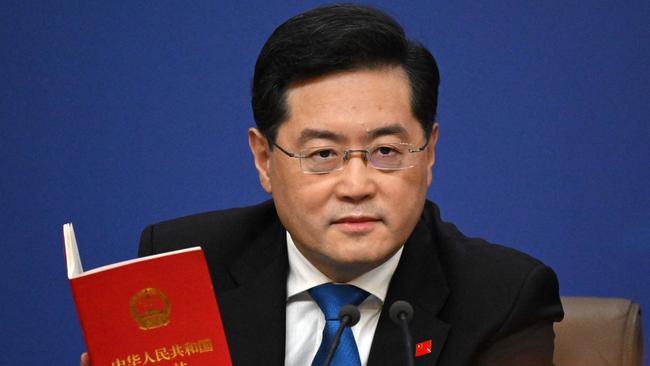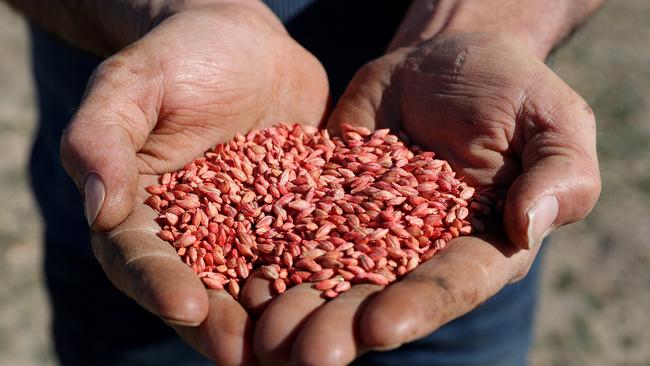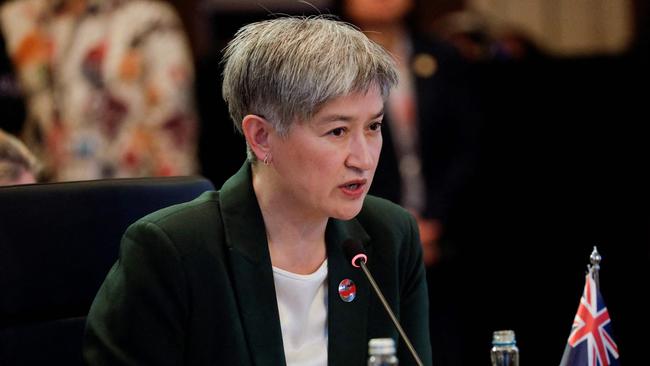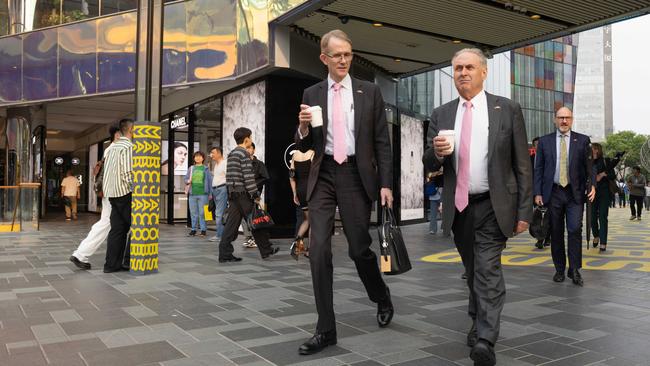
Australia’s barley growers, particularly those from Western Australia, once had a thriving trade selling to China – particularly its beer makers – in an export business worth $1.1bn a year between 2014 and 2018.
But the market was dealt a blow in November 2018 with the announcement that China’s powerful Ministry of Commerce was investigating an anti-dumping complaint against Australian barley – a move seen as a sign of further deterioration in the political relationship between China and Australia.
After an 18-month investigation, the ministry imposed tariffs of more than 80 per cent which proved enough to kill the market.
While Australian barley producers have since found other markets, none has been quite as lucrative as the prices paid by Chinese beer makers (who would still like to buy Australian barley if they could).

Australia lodged a complaint with the World Trade Organisation, which produced its draft ruling earlier this year. The ruling is still confidential but is believed to have largely supported Australia’s case.
With relations between China and Australia improving under the Albanese Labor government, the two sides sought to use a potential off ramp, spending the past four months discussing the issue behind closed doors.
The Chinese side has until August 11 to come back to Australia with its proposal.
If Beijing does nothing or offers only a partial deal, the federal government will take the case back to the WTO.
But the dispute has much broader political significance. China’s response is being seen as a bellwether of sentiment in Beijing on its attitude towards Australia and an indicator of potential progress on other trade disputes, particularly the 200 per cent plus tariffs on Australian wine exports.
The tariffs on wine, another business which was worth more than $1.2bn at its peak, have hit small Australian winemakers hard and hit the total demand for grapes in the Australian market.
The federal government also lodged a WTO complaint against China for its wine tariffs, and a draft report on that issue is expected before the end of the year.
The move on barley is being seen as a precedent for what could happen with wine, while other Australian markets – particularly lobster – are watching for signs the Chinese market could reopen to them.

Treasury Wine Estates, the makers of Penfolds, one of the most popular foreign wine brands in China (currently supplied from its vineyards in France and California) already had a contingency plan for re-entering the Chinese market for its Australian-made wines, but it is not holding its breath.
Beef is another area which has the potential to be much more successful in China and hopes for some reprieve from non-tariff trade restrictions, particularly those against several major abattoirs which once serviced the Chinese market.
While relations between Australia and China have improved significantly – thanks to exchanges between ministers, and meetings between political leaders – there is still strain and ties are not improving as fast as some had hoped.
The key issue ahead is whether Prime Minister Anthony Albanese will take up China’s offer to visit this year, potentially to mark the 50th anniversary of Gough Whitlam’s first visit to China by a prime minister in October 1973.
Foreign Minister Penny Wong has indicated that Australia would like to see more progress on the trade disputes with China before Mr Albanese makes a visit.
If the process around the WTO and wine takes the same time as barley – four months after the parties get the WTO draft report – there is no way the issue could be resolved in time for an October visit by the PM.
There are also clear differences between Australia and China over the issues of Australia’s involvement in AUKUS, China’s support for Russian President Vladimir Putin, the prolonged detention of two Australian citizens, and now Hong Kong’s bounty on the head of two people in Australia.

But some positive news on barley by the August 11 deadline would change the tone significantly beyond the importance of the barley trade itself.
One possible facing-saving reason for delaying Mr Albanese’s visit into next year could be the departure of Australia’s ambassador to China, Graham Fletcher, a highly respected, DFAT veteran and experienced China hand, who is ending his four years in Beijing later this year.
News of his successor is eagerly awaited in diplomatic and Australia-China trade circles.
One could argue that Canberra could delay the first prime ministerial visit to China since Malcolm Turnbull attended the G20 in September 2016, quietly explaining to China’s Ministry of Foreign Affairs that it might best await a new ambassador and give that person some time to get their feet under the table.
But Albanese can also justifiably say he would like to see more progress on trade and potentially on other issues before he makes the trip.
For its part, China is also having to rapidly recalibrate its own diplomatic firepower with the removal of its newly appointed foreign minister, Qin Gang, this week after only seven months in the job.
Social media rumour mills have been running hot in recent weeks about his future, after he dropped out of scheduled diplomatic meetings a few weeks ago.
The reports have focused on a suggested relationship with a former Hong Kong-based newsreader who interviewed Qin in his former post as ambassador to the US in Washington.
More details have been flourishing online – so much so that some overseas-based China observers have wondered why so much has actually been allowed to go on social media sites which can easily be blocked.
Needless to say, the issue appears to be more around personal events to do with Qin himself rather than any specific power struggle in Beijing. Veteran diplomat Wang Yi, who is well known to Australia, has stepped back into his old job, most likely temporarily.
As Chinese philosopher Lao Tzu once said: “The journey of a thousand miles begins with a single step.”
China’s response on barley by the end of next week has the potential to be a first step, but it could also be yet another disappointment in a much longer and more difficult journey.




The nation’s ties with China take a key turn next week when Beijing has to come back to Canberra on its response to the World Trade Organisation draft report over its tariffs on Australian barley.